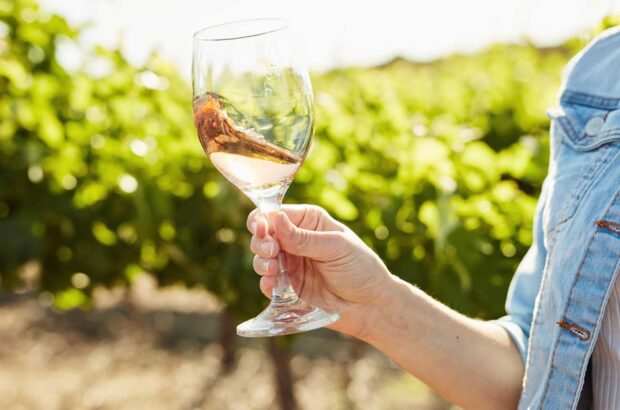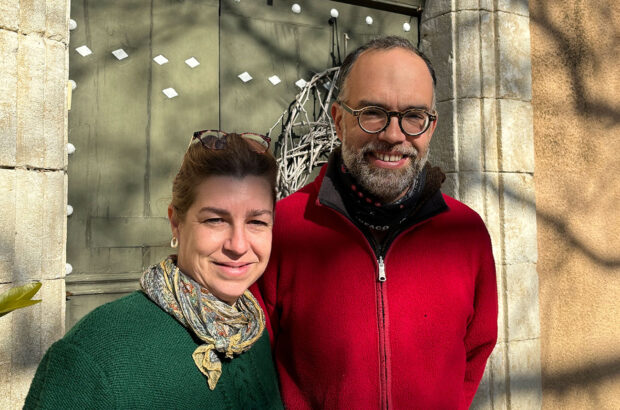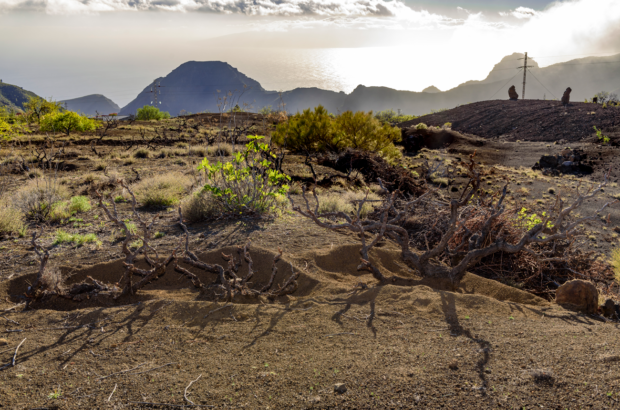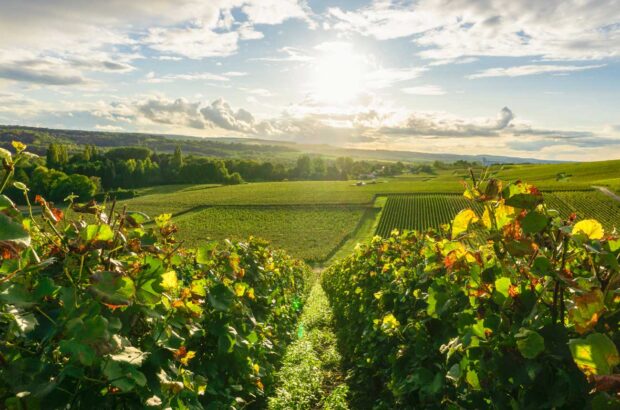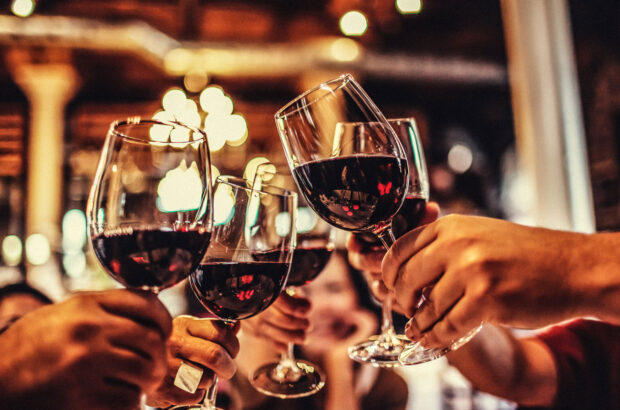Lamballe, CEO of window manufacturer FenêtréA, purchased the 25-hectare property Kerfraval in the village of Baden, near the natural harbour of the Gulf of Morbihan, in March 2022.
Sallaud will transform Kerfraval into a wine estate, named Domaine Lamballe, comprising a winery – where he will make still and sparkling wine – a visitor centre and six gites.
‘We will plant 10ha of Chardonnay in April this year to make still and sparkling wines,’ Sallaud told Decanter.
‘Mr Lamballe loves Chablis, he wants to make a “Breton Chablis” together with sparkling wines,’ Sallaud said during an exclusive tour of the estate. ‘We will be making pure, fresh and naturally balanced wines on a distinctive terroir of granite soils,’ he added.
Sallaud spent eight years as head of wine operations at Fronsac producer Château Puy Guilhem. When asked why he had decided to leave Bordeaux, Sallaud said he was attracted by the challenge of making wines in Brittany, a culturally distinctive peninsula on Europe’s Atlantic edge.
‘This site has a special feeling. As soon as I first saw it, I felt it was the right place for me,’ Sallaud said.
Brittany, a former independent kingdom, has long been better known for its cider and beer production. This is in part due to the fact that in 1941 the French state removed the Pays Nantais, where Muscadet is produced, from the Brittany region to the Loire Valley region.
However, wine plantings in Brittany have substantially increased since the EU’s liberalisation of planting rights in 2016, which brought an end to France’s prohibition of commercial wine production in Brittany. Loïc Fourure, president of the Association Vignerons Bretons (Breton Winemakers Association), said there were now 27 professional vintners operating in Brittany.
A changing climate has prompted some French producers to look north, where they believe they can make lighter, fresher wines.
This year sees the release of Brittany’s first contemporary commercial wines. Edouard Cazals, winemaker at Les Longues Vignes near St Malo, will release a number of wines including a barrel-fermented Chardonnay, a blend of Grolleau and Pinot Noir, and a traditional method sparkling wine. His vineyards are in conversion to organics.
Meanwhile, Guillaume Hagnier, a former Champagne producer, will release his first still Chardonnay made at Vignoble de Rhuys, in Sarzeau, southern Brittany, in May.
In 2020, Hagnier won an unusual tender from the commune of Sarzeau to produce wines at Vignoble de Rhuys. The commune is investing €1.5m (£1.3m) in a new winery and visitors centre, which is expected to be completed by the end of 2023.
In November 2021, French billionaire Christian Latouche won an approval from the French state’s prefecture in Morbihan to plant a contested vineyard on the Breton island of Belle-Île-en-Mer.









